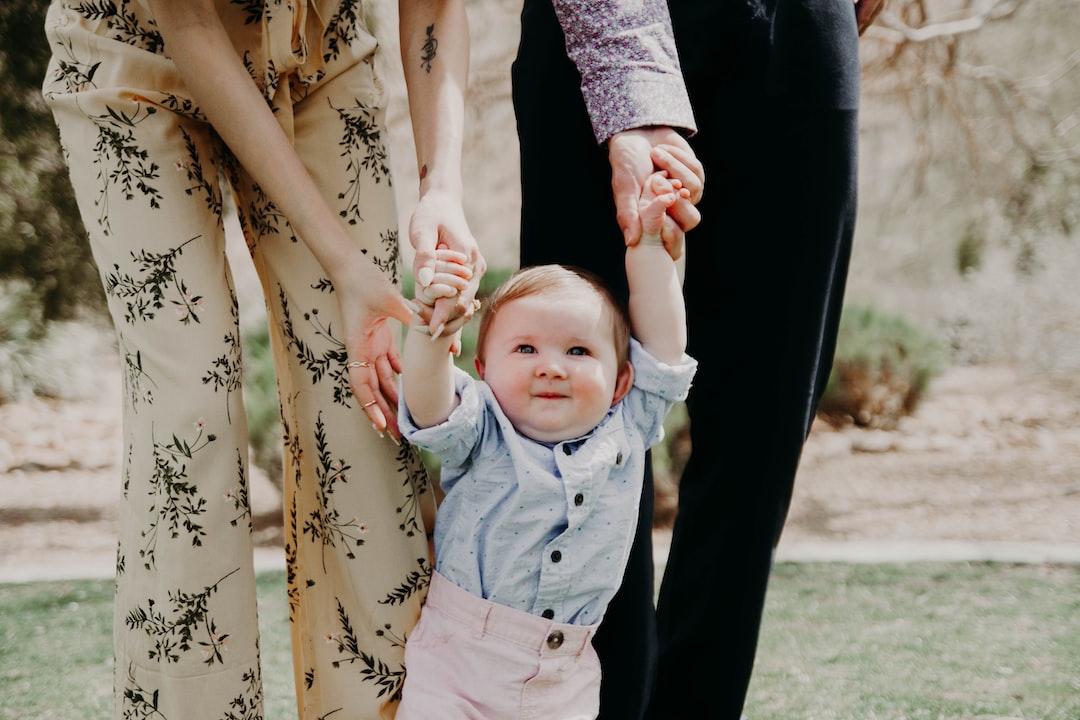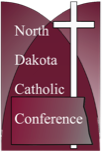
To: House Human Services Committee
From: Christopher Dodson, Executive Director
Subject: House Bill 1375 - Appropriation for Cost of Home Study Reports
Date: January 31, 2023
The North Dakota Catholic Conference supports House Bill 1375 because it is the one bill this session that can immediately reduce the cost of adoption.
Probably the most common question I am asked in my position is: “How can we make adoption more affordable?” Legislators, in particular, have asked me that question many times since the Dobbs decision.
As you have already learned from your work on other bills, there are several “parts” to the adoption process that involve different chapters of the Century Code. For example, there is a legal process that finalizes the adoption. Although the legislature could examine that process to see if it could be streamlined, it has no direct control over the costs of the legal portion of the adoption process.
Nor can the legislature — short of prohibition — do anything about costs associated with adoptions initiated out-of-state or in other countries by entities or individuals not regulated by North Dakota law.
There is one thing that the state can do to reduce the costs of adoptions in North Dakota. It can reimburse the child-placing agency (commonly called an adoption agency) for the cost of the adoptive home study.
State law requires a child-placing agency to complete the home study for every adoption, but provides no reimbursement for this mandated expense.* The agency can, and often does, ask the adoptive couple to pay for the study. But the agency cannot, by law, require the couple to pay for the study. In short, the state’s unfunded mandate falls on either the adoptive parent or the agency, adding to the costs of adoption.
Not only is the home study an unfunded mandate, but it is also something the state would be doing and paying for itself if the adoption agencies were not doing them. Adoption in the United States is a state function. Legally, only the state or persons designated by the state can facilitate adoptions. North Dakota chose long ago to delegate this state function to the child-placing agencies without, as noted, any funding for assuming this responsibility.
House Bill 1375 is straightforward. It provides funding for the Department of Health and Human Services to reimburse nonprofit child-placing agencies for the costs of completing the home study.
Three nonprofit adoption agencies facilitate almost all adoptions in North Dakota. They are Village Family Services, Catholic Charities of North Dakota, and Christian Adoption Services. Their costs for completing a home study range from $3,000 to $4,000. Combined, they complete about thirty-seven home studies a year.
These two charts, one using an actual cost and one using an average cost, show that the cost of completing the home studies is around $262,000 or $271,333 a biennium.
From: Christopher Dodson, Executive Director
Subject: House Bill 1375 - Appropriation for Cost of Home Study Reports
Date: January 31, 2023
The North Dakota Catholic Conference supports House Bill 1375 because it is the one bill this session that can immediately reduce the cost of adoption.
Probably the most common question I am asked in my position is: “How can we make adoption more affordable?” Legislators, in particular, have asked me that question many times since the Dobbs decision.
As you have already learned from your work on other bills, there are several “parts” to the adoption process that involve different chapters of the Century Code. For example, there is a legal process that finalizes the adoption. Although the legislature could examine that process to see if it could be streamlined, it has no direct control over the costs of the legal portion of the adoption process.
Nor can the legislature — short of prohibition — do anything about costs associated with adoptions initiated out-of-state or in other countries by entities or individuals not regulated by North Dakota law.
There is one thing that the state can do to reduce the costs of adoptions in North Dakota. It can reimburse the child-placing agency (commonly called an adoption agency) for the cost of the adoptive home study.
State law requires a child-placing agency to complete the home study for every adoption, but provides no reimbursement for this mandated expense.* The agency can, and often does, ask the adoptive couple to pay for the study. But the agency cannot, by law, require the couple to pay for the study. In short, the state’s unfunded mandate falls on either the adoptive parent or the agency, adding to the costs of adoption.
Not only is the home study an unfunded mandate, but it is also something the state would be doing and paying for itself if the adoption agencies were not doing them. Adoption in the United States is a state function. Legally, only the state or persons designated by the state can facilitate adoptions. North Dakota chose long ago to delegate this state function to the child-placing agencies without, as noted, any funding for assuming this responsibility.
House Bill 1375 is straightforward. It provides funding for the Department of Health and Human Services to reimburse nonprofit child-placing agencies for the costs of completing the home study.
Three nonprofit adoption agencies facilitate almost all adoptions in North Dakota. They are Village Family Services, Catholic Charities of North Dakota, and Christian Adoption Services. Their costs for completing a home study range from $3,000 to $4,000. Combined, they complete about thirty-seven home studies a year.
These two charts, one using an actual cost and one using an average cost, show that the cost of completing the home studies is around $262,000 or $271,333 a biennium.
As mentioned, reimbursing the agencies for the costs of completing the home studies may be the one thing this legislative body can do in this session to reduce the costs of adoption. Moreover, it is the state that requires the home study and it is the state that would be doing the home studies if it had not handed off that function to the adoption agencies. In short, there is a direct connection between the state government and this portion of the total costs of adoption.
The state of North Dakota should encourage adoption and make it affordable for those parents wanting to adopt. House Bill 1375 furthers that goal.
We ask for a Do Pass recommendation on House Bill 1375.
The state of North Dakota should encourage adoption and make it affordable for those parents wanting to adopt. House Bill 1375 furthers that goal.
We ask for a Do Pass recommendation on House Bill 1375.
* Chapter 50-12 requires completion of the adoptive home study and sets forth some of the requirements. Chapter 75-03-36 of the Administrative Code provides the requirements for licensed child-placement agencies, including the adoptive home study requirements. Administrative Code 75-03-36-31(4) states:
The child-placing agency shall document the following information in the applicant's record and a summary of the information must be recorded in the adoption assessment:
a. Motivation for adoption;
b. Strengths and challenges of each member of the family;
c. The attitudes and feelings of the family members and extended family regarding adoption, with emphasis, if indicated, on attitudes and feelings about potential special needs and foreign-born children;
d. Evidence of stability of the adoptive parents' marital or other significant relationships;
e. The applicant's understanding of and plans for assisting a minority or foreign- born child to understand and value the child's racial and cultural background;
f. Attitudes of the applicant toward the birth parents and the birth parents' reasons for placement;
g. The applicant's plan for discussing adoption with the child;
h. The applicant's emotional stability and maturity, including a history of treatment for substance abuse, mental health concerns, abuse or neglect issues, or other issues impacting the applicant's emotional stability and maturity. If indicated, the child-placing agency shall make arrangements for psychological evaluation of the applicant's emotional stability and maturity;
i. The applicant's parenting skills and willingness to acquire additional skills needed for the child's development;
j. The attitude of the applicant's birth children or previously adopted children about adoption, if applicable;
k. Reports of the physical examination of the applicant or self-disclosure of medical concerns, current within the last twelve months;
l. The applicant's ability to provide financially for the child to be adopted with or without financial assistance under subsidized adoption, including the availability of health insurance;
m. The applicant's references, including at least five personal and community character references;
n. The applicant's religious preference, if any;
o. Description of the applicant's home and community;
p. Substitute care for child care if the applicant works;
q. Plans for care of the child in the event of the death of the applicant after the adoption;
r. Results of fingerprint-based criminal history record investigation and child abuse and neglect index investigations; and
s. Recommendations for adoption in regard to number, age, sex, characteristics, and special needs of children best served by the applicants.
The child-placing agency shall document the following information in the applicant's record and a summary of the information must be recorded in the adoption assessment:
a. Motivation for adoption;
b. Strengths and challenges of each member of the family;
c. The attitudes and feelings of the family members and extended family regarding adoption, with emphasis, if indicated, on attitudes and feelings about potential special needs and foreign-born children;
d. Evidence of stability of the adoptive parents' marital or other significant relationships;
e. The applicant's understanding of and plans for assisting a minority or foreign- born child to understand and value the child's racial and cultural background;
f. Attitudes of the applicant toward the birth parents and the birth parents' reasons for placement;
g. The applicant's plan for discussing adoption with the child;
h. The applicant's emotional stability and maturity, including a history of treatment for substance abuse, mental health concerns, abuse or neglect issues, or other issues impacting the applicant's emotional stability and maturity. If indicated, the child-placing agency shall make arrangements for psychological evaluation of the applicant's emotional stability and maturity;
i. The applicant's parenting skills and willingness to acquire additional skills needed for the child's development;
j. The attitude of the applicant's birth children or previously adopted children about adoption, if applicable;
k. Reports of the physical examination of the applicant or self-disclosure of medical concerns, current within the last twelve months;
l. The applicant's ability to provide financially for the child to be adopted with or without financial assistance under subsidized adoption, including the availability of health insurance;
m. The applicant's references, including at least five personal and community character references;
n. The applicant's religious preference, if any;
o. Description of the applicant's home and community;
p. Substitute care for child care if the applicant works;
q. Plans for care of the child in the event of the death of the applicant after the adoption;
r. Results of fingerprint-based criminal history record investigation and child abuse and neglect index investigations; and
s. Recommendations for adoption in regard to number, age, sex, characteristics, and special needs of children best served by the applicants.
What We Do
The North Dakota Catholic Conference acts on behalf of the Roman Catholic bishops of North Dakota to respond to public policy issues of concern to the Catholic Church and to educate Catholics and the general public about Catholic social doctrine.

Contact Us
North Dakota Catholic Conference
103 South Third Street, Suite 10
Bismarck, North Dakota
58501
1-888-419-1237
701-223-2519
Contact Us

